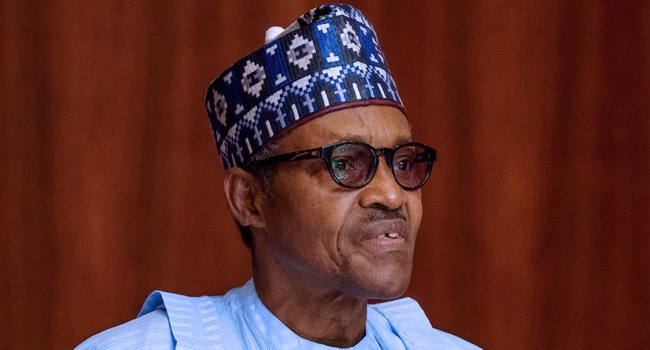News
President Buhari presents 2020 budget of N10.33 trn

President Muhammadu Buhari, on Tuesday, presented the 2020 appropriation bill to a joint session of the National Assembly in Abuja
The N10.33 trillion budget proposal includes statutory transfers of N556.7 billion, non-debt recurrent expenditure of N4.88 trillion and capital expenditure of N2.14 trillion (excluding the capital component of statutory transfers).
The President said debt service is estimated at N2.45 trillion, and provision for Sinking Fund to retire maturing bonds issued to local contractors is N296 billion.
According to him, the government have benchmark price of oil at $57 per barrel, daily production of 2.18 million barrel – which puts oil revenue at N2.64 trillion – and an exchange rate of N305 to the US Dollar for 2020.
Read also: Nigerian govt’s 7.5% VAT increase may have been rejected, its alternative is not pocket-friendly
He said the government have estimated total revenue in 2020 to be N8.155 trillion, comprising of oil revenue N2.64 trillion, non-oil tax revenues N1.81 trillion, and other revenues of N3.7 trillion. The estimated revenue is a 7 per cent increase from the 2019 estimated revenue of N7.594 trillion.
The budget is aimed at fiscal consolidation, to strengthen our macroeconomic environment; investing in critical infrastructure, human capital development and enabling institutions, especially in key job-creating sectors; incentivise private sector investment essential to complement the Government’s development plans, policies and programmes; and enhancing our social investment programs to further deepen their impact on those marginalised and most vulnerable Nigerians.
He said the sum of N556.7 billion has been budgeted for statutory transfers, which will see N125 billion for the National Assembly, N110 billion for Judiciary, N37.83 billion for North East Development Commission (NEDC), N44.5 billion for Basic Health Care Provision Fund (BHCPF), N111.79 billion for Universal Basic Education Commission (UBEC), and N80.88 billion for Niger Delta Development Commission (NDDC).
Also, capital expenditure is expected to amount to N2.46 trillion (including N318.06 billion statutory transfers) and the amount is expected to be distributed as follows:
1. Works and Housing: N262 billion
2. Power: N127 billion
3. Transportation: N123 billion
4. Universal Basic Education Commission: N112 billion
5. Defence: N100 billion
6. Zonal Intervention Projects: N100 billion
7. Agriculture and Rural Development: N83 billion
8. Water Resources: N82 billion
9. Niger Delta Development Commission: N81 billion
10. Education: N48 billion
11. Health: N46 billion
12. Industry, Trade and Investment: N40 billion
13. North East Development Commission: N38 billion
14. Interior: N35 billion
15. Social Investment Programmes: N30 billion
16. Federal Capital Territory: N28 billion
17. Niger Delta Affairs Ministry: N24 billion
The sum of N2.18 trillion was projected as the budget deficit. This includes drawdowns on project-tied loans and the related capital expenditure.
The focus of the budget is to complete ongoing projects rather than commencing new one. Consequently, Ministries, Departments, Agencies (MDAs) were not allowed to add new projects to the 2020 budget.
Buhari said the proposed 2020 budget is based on the drafted Finance Bill that will see Value Added Tax (VAT) increase from 5% to 7.5%. The President also proposed a raise in the threshold for VAT registration to N25 million in turnover per annum to enable revenue authorities to focus compliance efforts on large business and bringing relief to Micro, Small and Medium-sized businesses (MSMEs).
Join the conversation
Support Ripples Nigeria, hold up solutions journalism
Balanced, fearless journalism driven by data comes at huge financial costs.
As a media platform, we hold leadership accountable and will not trade the right to press freedom and free speech for a piece of cake.
If you like what we do, and are ready to uphold solutions journalism, kindly donate to the Ripples Nigeria cause.
Your support would help to ensure that citizens and institutions continue to have free access to credible and reliable information for societal development.






















